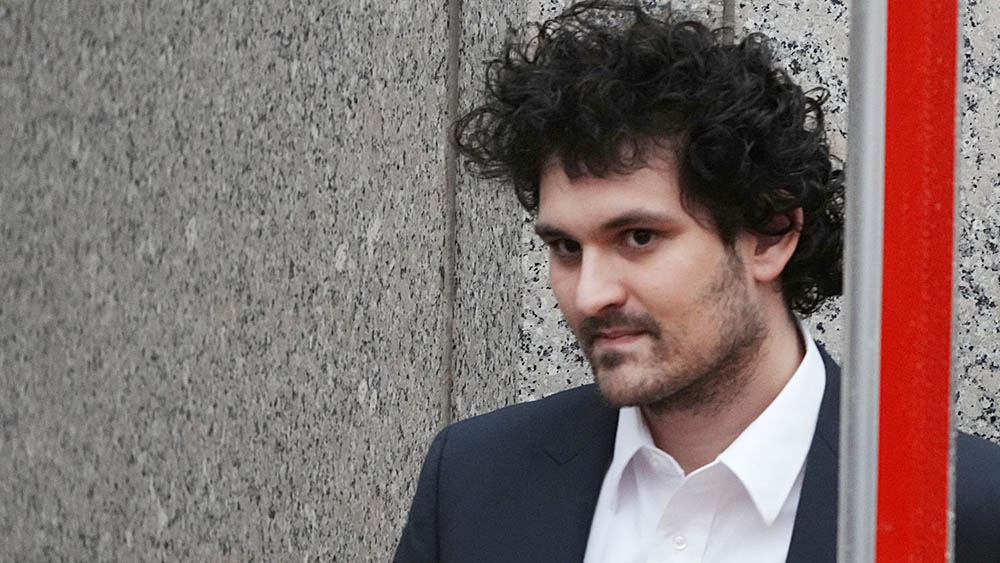NEW YORK, (Reuters) – U.S. prosecutors yesterday unveiled a new indictment against Sam Bankman-Fried, accusing the founder of the now-bankrupt FTX cryptocurrency exchange of paying a $40 million bribe to Chinese officials so they would unfreeze his hedge fund’s accounts.
The new bribery conspiracy charge adds the pressure on the 31-year-old former billionaire, who now faces a 13-count indictment over the November collapse of FTX.
Prosecutors had previously accused Bankman-Fried of stealing billions of dollars in customer funds to plug losses at his Alameda Research hedge fund, and orchestrating an illegal campaign donation scheme to buy influence in Washington, D.C.
A spokesman for Bankman-Fried declined to comment.
Bankman-Fried is expected to be arraigned tomorrow before U.S. District Judge Lewis Kaplan in Manhattan federal court.
Separately yesterday, Kaplan approved modifications to Bankman-Fried’s $250 million bail package that are designed to prevent the defendant from tampering with witnesses.
The indictment said Bankman-Fried ordered the $40 million cryptocurrency payment to a private wallet from Alameda’s main trading account, to persuade Chinese government authorities to unfreeze Alameda accounts with more than $1 billion of cryptocurrency.
Prosecutors said the Alameda accounts had been frozen as part of an investigation into an unnamed Alameda counterparty, and Bankman-Fried’s prior efforts to lobby Chinese officials to lift the freeze were unsuccessful.
They also said Bankman-Fried later authorized a transfer of tens of millions of dollars of additional cryptocurrency to “complete” the bribe.
China’s foreign ministry could not immediately be reached for comment after business hours in Beijing. The Chinese embassy in Washington, D.C. did not immediately respond to a request for comment.
Bankman-Fried has pleaded not guilty to eight of the 13 counts he faces, and not yet been arraigned on the campaign finance or bribery conspiracy charges.
He has acknowledged inadequate risk management at FTX, but has denied stealing money.
Three onetime members of his inner circle – former Alameda CEO Caroline Ellison, former FTX technology chief Zixiao “Gary” Wang, and former FTX engineering director Nishad Singh – have pleaded guilty and agreed to cooperate with prosecutors.
Bankman-Fried’s case is part of an escalating crackdown on alleged abuses at digital asset exchanges by U.S. prosecutors and regulators, following last year’s plunge in the values of Bitcoin and other tokens as central banks raised interest rates.
Last Thursday, Do Kwon, whose Terraform Labs developed the TerraUSD and Luna coins that crashed last May, was arrested in Montenegro while carrying alleged bogus travel documents, as a Manhattan grand jury indicted him on fraud charges.
And on Monday, the Commodity Futures Trading Commission sued Binance, the world’s biggest crypto exchange, and its founder Changpeng Zhao for executing unauthorized transactions. Zhao called the complaint “unexpected and disappointing.”
The U.S. Securities and Exchange Commission has separately threatened to sue Coinbase Global Inc COIN.Oover that crypto exchange’s products.
Prosecutors’ newest charge accuses Bankman-Fried of conspiring to violate the Foreign Corrupt Practices Act, which makes it illegal for U.S. citizens to bribe foreign government officials to win business.
Bankman-Fried is confined to his parents’ Palo Alto, California home ahead of his scheduled Oct. 2 trial.
His revised bail conditionsprevent him from using most electronics, apart from a phone with no internet capability and a basic laptop with limited functions. The laptop will have monitoring software to track user activity.
Concerns that Bankman-Fried might tamper with witnesses, prompted Kaplan to threaten jailing him unless tighter restrictions could be worked out.
Lawyers for Bankman-Fried have said their client contacted current FTX executives to offer help, not to interfere, but nonetheless agreed to restrictions on his use of electronics.

